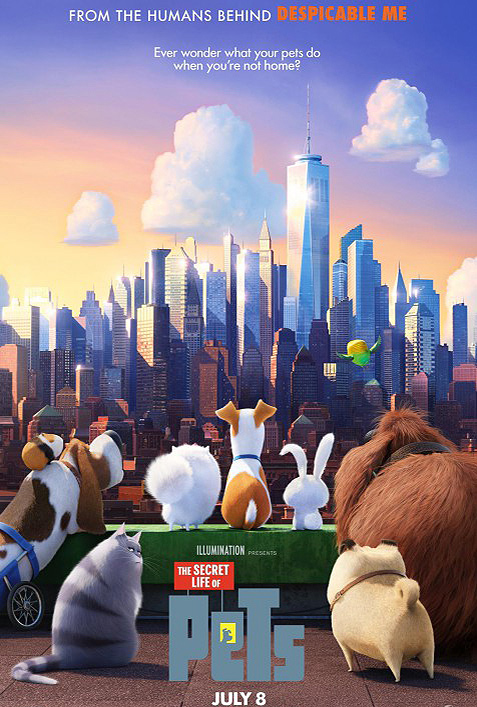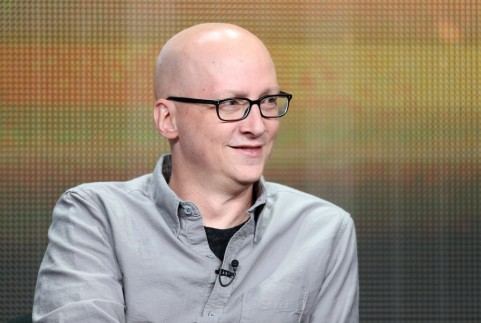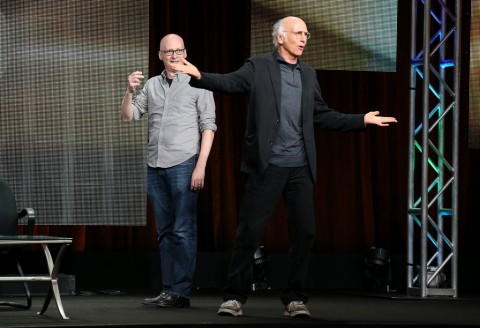Now that I’m back from the January 2012 TCA Press Tour, I’m very, very tired…and, trust me, if you knew how much work I’d done during the course of the tour – January 3 – 15 – then you’d understand why I’m so very, very tired. I tried to attend as many of the panel coverage of the next six months of television as I possibly, but given that I was bouncing between one-on-one interviews throughout the day and trying to round up a few more every night, I’m not going to pretend that I was able to attend them all. I attended enough of them, however, that it doesn’t take a great deal of effort to produce a collection of my favorites quotes of the tour. That’s not to say this is all of them, mostly because some of the panels (like, say, “Archer”) were very much of the you-had-to-be-there variety, but it’s enough to give you an idea just how entertaining the last two weeks have been.
Tiring as hell, but definitely entertaining.
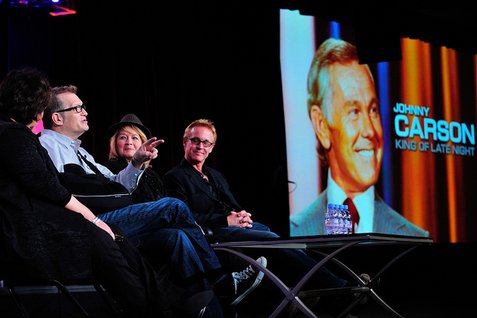
“When (Johnny Carson and I) talked, after 12 years of writing him, in 2002 he finally actually called me, and I thought it was a joke when on the PA it said “Peter, Johnny Carson on 601.” And he said, “Peter, it’s Johnny Carson. I want to tell you, you write a damn fine letter, but I’m not going to participate in anything on my life because, you know what? I don’t give a shit.” He said, “One day something may get done, and you know what? You’re probably the guy to do it. But it will never happen while I’m alive. I’ve done everything I’ve wanted to do. I’ve said anything I want to say. There is nothing more.” – director Peter Jones on trying to secure an interview with Johnny Carson for the long-gestating “American Masters: Johnny Carson”
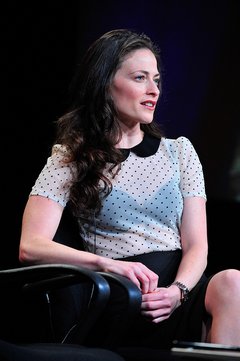
“To be honest, it’s one of two minutes in a 90 minute episode, and it’s pre the 9 o’clock BBC watershed. There is nothing that you see. It’s very suggestive. It’s very clever camerawork, and it’s just a character device. It’s not about nudity being displayed in ‘Sherlock.’ She’s a dominatrix. Nudity is nothing to her, but it was no mean feat for me to shoot it being naked for eight hours in just a pair of Louboutin shoes. (It) was a challenge…and one I’ve never met before.” – Laura Pulver on her nude scene in “Sherlock II”
“One of the things that is amazing is to look back at a song that is so inevitable, like ‘Over The Rainbow.’ That’s like a folk tune. We all know it so well. And I discovered that (songwriter) Yip Harburg was having trouble coming up with an idea for the words that proceeded ‘rainbow.’ ‘Somewhere beyond the rainbow.’ ‘Somewhere near to the rainbow.’ It just didn’t feel right. And then he came up with ‘somewhere over the rainbow’ because, as a lyricist, he realized that the ‘o’ sound sang well, and it was a pleasing for a singer. And, technically, it worked right, and it gave him the right setting for the word ‘rainbow.’ ‘Somewhere over the rainbow.’ And then I discovered that, the end of that song, they were having trouble with it.
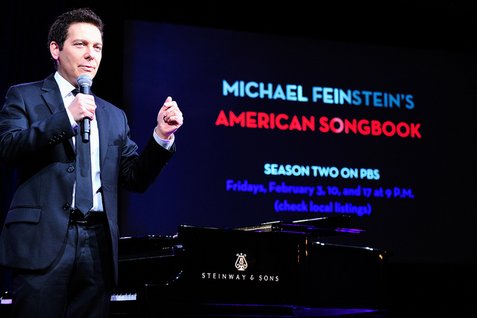
“Yip Harburg and Harold Arlen, Arlen being the composer and Harburg being a lyricist, they were having trouble with the last line of the song. And they were working at Ira Gershwin’s house, and they couldn’t come up with the idea to end the whole thing. They’d gone through the whole song, and they couldn’t come up with the end. And they were working for hours at Ira Gershwin’s house, and he was tired, and he wanted to go to bed. So he said, ‘What about ‘Birds fly over the rainbow. So why can’t I?’ And they said, ‘Hey!’ And he gave him the idea, the whole end of it, and then he came up with this: ‘If happy little bluebirds fly beyond the rainbow, why, oh, why can’t I?’ And when Mr. Gershwin was alive, I said, ‘Ira, why did you meddle in somebody else’s songwriting?’ He said, ‘Because it was late and I wanted to get to bed.’” – Michael Feinstein on “American Songbook II”
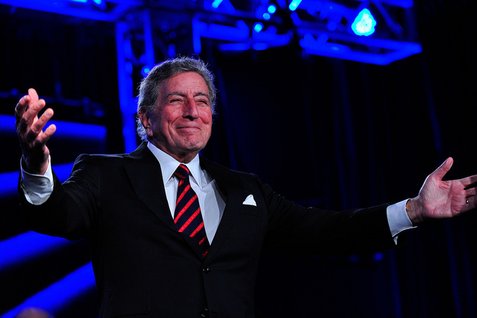
“I had great Italian American family that were in the grocery business. And it was during the Depression, and we were all very, very poor. The whole country, the majority of the country was really, really poor, a lot worse than it is today. And so my father died when I was ten and my brother and sister and I would entertain my family because my family all my uncles and nephews and aunts and relatives they all would come over on a Sunday and make a circle around my brother, sister, and I. And they were so knocked out with trying to make my mom feel good because she had to work on a penny a dress to raise three children, and the whole family felt so much for her, but they wanted to show her how much they loved her children. And they treated me and my brother and my sister with so much love, and they I remember at a very early age, they said to me, ‘Look at the way he makes us feel good, you know, and he’s so happy, and he’s always doing something to make us feel good, and look at the way he paints flowers and all that.’ I remember very clearly saying, ‘This is who I am. My family is telling me that I sing and I paint,’ and they created a tremendous gift in my life to continue that, and each year it’s become stronger and stronger. I will never retire, and, you know, if my voice goes, I’m still going to paint. I just want to keep improving as I go on, and it’s just taught me what a beautiful life it is to be possessed with. It’s not that I want to do it. I have to do it. And it will always be that way. I will never retire.” – Tony Bennett on the secret to his longevity
Read the rest of this entry »
